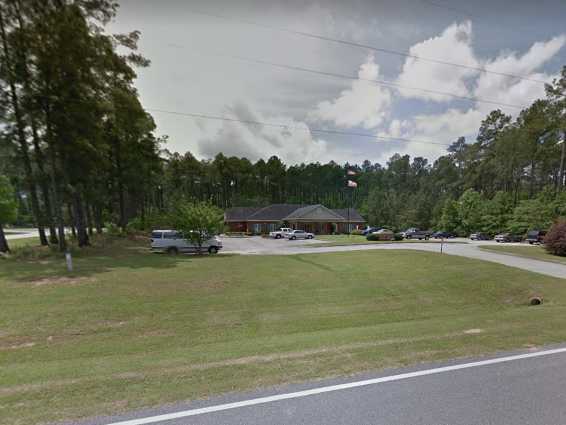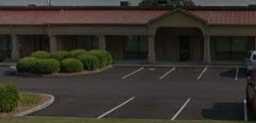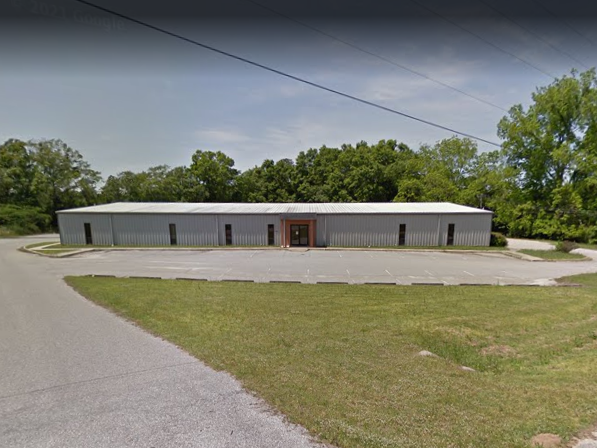Grady County MH Peer Support Prog

Contact Details
-
Name:Grady County MH Peer Support Prog
-
Address:1641 North Broad Street
Cairo, GA - 39828 -
Phone:229-225-5208
-
Email:
-
Website:
Description
There are currently state and federally funded or sponsored drug and alcohol treatment centers in the state of Georgia
Questions & Answers
Help others like you find out more about Grady County MH Peer Support Prog. Do you know the answers to any of these questions? Contribute now and help others like you.
What kinds of care do they offer?
-
Mental health treatment
Includes interventions such as therapy or psychotropic medication that treat a person's mental health problem or condition, reduce symptoms, and improve behavioral functioning and outcomes.
What type of facility is this?
-
Community mental health center
Facility that (1) provides outpatient services, including specialized outpatient services for children, the elderly, individuals who are chronically mentally ill, and residents of its mental health service area who have been discharged from inpatient treatment at a mental health facility; (2) provides 24-hour emergency care services; (3) provides day treatment or other partial hospitalization services, or psychosocial rehabilitation services; (4) provides screening for patients being considered for admission to state mental health facilities to determine the appropriateness of the admission; and (5) meets applicable licensing or certification requirements for CMHCs in the state in which it is located. (https://www.cms.gov/
What types of treatment approaches do they offer?
-
Group therapy
Involves groups of usually 4 to 12 people who have similar problems and who meet regularly with a therapist. The therapist uses the emotional interactions of the group's members to (1) help them get relief from distress and (2) possibly modify their behavior.
-
Smoking permitted in designated area
A designated area in which smoking is permitted.
What type of setting is this location?
-
Outpatient
Describes patients who receive treatment services without an overnight stay at a treatment facility or hospital.
Who is responsible for the operation of this facility?
-
State government
Government of a country subdivision in a federal form of government, which shares political power with the federal or national government and must meet certain standards set by the federal government, but are free to expand beyond what exists at the federal level and improve services, access, and protections for consumers, such as mental health and substance abuse services, in that state.
What types of payment or funding do they accept?
-
Cash or self-payment
Payment for treatment is made by the person directly, through cash or other means, rather than using health insurance.
-
Medicaid
A joint federal and state program that helps with medical costs for some people with low incomes and limited resources. Medicaid programs vary from state to state.
-
Medicare
The federal health insurance program for people age 65 and older and people with disabilities.
-
State-financed health insurance plan other than Medicaid
-
Federal military insurance (e.g., TRICARE)
-
State mental health agency (or equivalent) funds
Funds designed to finance the cost of treatment for mental health conditions.
-
State welfare or child and family services funds
-
County or local government funds
-
Community Service Block Grants
Provides funds to alleviate the causes and conditions of poverty in communities.
-
Community Mental Health Block Grants
Through individual block grant contracts with community mental health services programs, these resources are focused on development and maintenance of community based services.
-
U.S. Department of VA funds
What language services are offered?
-
Sign language services for the deaf and hard of hearing
Service provided for persons who are deaf and hard of hearing.
What specific groups are treated here?
-
Clients with co-occurring mental and substance use disorders
Facility has a program or group specifically tailored for persons with co-occurring mental and substance abuse disorders.
-
Clients who have experienced trauma
Facility has a program or group specifically tailored for persons who have experienced trauma.
-
Persons 18 and older with serious mental illness (SMI)
Facility has a program or group specifically tailored for persons with serious mental illness.
-
Persons with post-traumatic stress disorder (PTSD)
Facility has a program or group specifically tailored for persons with post-traumatic stress disorder.
What types of recovery support services are offered here?
-
Mentoring/peer support
What ancillary services are offered at this facility?
-
Psychosocial rehabilitation services
Offered individually or in groups, provide therapeutic or intervention services such as daily and community-living skills, self-care and skills training (grooming, bodily care, feeding, social skills training, and basic language skills).
What age groups are accepted here?
-
Young Adults
Facility accepts young adults (13-25) for treatment.
-
Adults
Facility accepts adults (26-64) for treatment.
-
Seniors
Facility accepts seniors (65 or older) for treatment.
What specific pharmacotherapy treatments do they provide?
-
Chlorpromazine
Chlorpromazine is used to treat the symptoms of schizophrenia and to treat the symptoms of mania in people who have bipolar disorder. It helps you to think more clearly, feel less nervous, and take part in everyday life. It can reduce aggressive behavior and the desire to hurt yourself/others. It works by helping to restore the balance of certain natural substances in the brain.
-
Fluphenazine
Fluphenazine is a decades-old antipsychotic medication used to treat schizophrenia and psychotic symptoms such as hallucinations, delusions, and hostility.
-
Haloperidol
Haloperidol is used to treat psychotic disorders and is also used to control motor tics and verbal tics in adults and children who have Tourette's disorder. Haloperidol is also used to treat severe behavioral problems such as explosive, aggressive behavior or hyperactivity in children who cannot be treated with psychotherapy or with other medications. Haloperidol is in a group of medications called conventional antipsychotics. It works by decreasing abnormal excitement in the brain.
-
Loxapine
-
Pimozide
-
Prochlorperazine
-
Trifluoperazine
-
Aripiprazole
-
Asenapine
-
Brexpiprazole
-
Cariprazine
-
Clozapine
-
IIoperidone
-
Lurasidone
-
Olanzapine
-
Olanzapine/Fluoxetine combination
-
Paliperidone
-
Quetiapine
-
Risperidone
-
Ziprasidone
-
Antipsychotics used in treatment of SMI
A multi-disciplinary clinical team approach, helps those with serious mental illness live in the community by providing 24-hour intensive community services in the individual's natural setting.
Is vaping allowed at this facility?
-
Vaping permitted in designated area
How do I apply for admission at this location?
Have you been to this facility? What was your experience?
Is there a wait-list for treatment center?
Is any payment required?
Related Posts
Georgia Pines Community Service Board
- Thomasville, GA
- 15.59 miles away
Georgia Pines Substance Abuse Services
- Pelham, GA
- 17.13 miles away


